News & Media
Unisa co-hosts Rustenburg G20 engagement
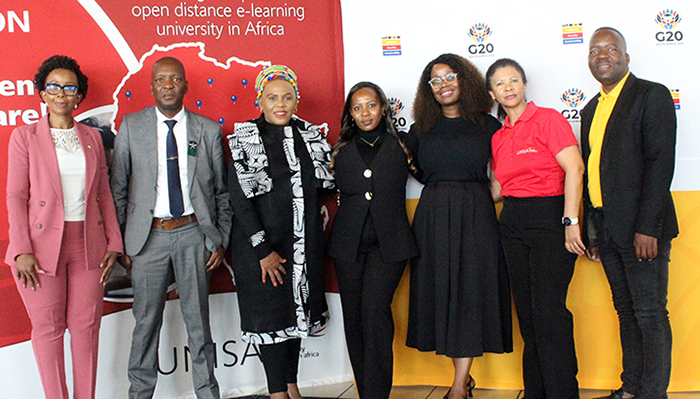
From left: Angie Bopape (Unisa), Prof Julius Tjelele (Unisa), Dr Maureen Tong (Unisa), Keorapetse Bosielo (BLH Mining), Dr Lesedi Nduna (Unisa), Letitia Lekay (Unisa), and Nelson Kgwete (DIRCO)
Unisa, in collaboration with the Rustenburg Local Municipality and the Department of International Relations and Cooperation (DIRCO), hosted a G20 Community Town Hall engagement on 30 October 2025 at the Rustenburg Civic Centre.
Under South Africa’s G20 presidency, themed “Solidarity, equality and sustainability”, the event provided a setting for advancing global dialogue and promoting inclusion, growth, peace, and sustainable development. As the first African country to host the G20 Summit, South Africa aims to amplify Africa’s voice in global governance and economic reform discussions.
Community engagement is part of the country’s effort to bring the G20 to the people, ensuring that communities, the business sector, academia, and civil society actively engage in conversations about how global economic decisions can deliver tangible local benefits in industries such as mining, agriculture, and tourism. It also focuses on economic opportunities for youth, women, and local communities.
The Executive Mayor of the Rustenburg Local Municipality, Councillor Sheila Mabala-Huma, highlighted the significance of hosting the G20 community engagement, calling it a proud moment for Africa. She emphasised that the event demonstrates leadership, vision, and unity on the global stage, while also helping to strengthen ties, advance collaboration and ensure that global economic policies translate into meaningful opportunities for communities.
“Hosting the G20 engagement is not only a prestigious event but also an opportunity to strengthen the economy and to build national pride”, she said. She encouraged communities to explore the agricultural sector, vigorously market the tourism sector, engage in discussions on how to expand the economy, drive industrialisation, develop skills, and create local business opportunities.
Mabala-Huma noted that mining remains a critical pillar of the South African economy, with Rustenburg's rich mineral deposits making a significant contribution to the country's industrialisation. However, she emphasised the need for sustainable mining practices that strike a balance between economic progress and environmental responsibility. She also highlighted the importance of building a resilient tourism sector. “We must attract investors for green technology and adopt sustainable practices to foster an economically flourishing tourism industry that contributes to environmental sustainability,” she said. She called on stakeholders to work together to ensure South Africa's G20 presidency leaves a legacy of inclusion and global cooperation.
Dr Maureen Tong, Director of Special Projects and International Relations at Unisa’s Office of the Principal and Vice-Chancellor, said that hosting this prestigious international summit has the potential to stimulate economic activity in South Africa through the participation of multiple countries. She noted that G20-related activities already underway have created opportunities and supported skills development for youth, women, and various sectors in the community. These initiatives are expected to contribute to economic growth, equality, and social development, both within the province and beyond.
The engagement provided a strategic platform to discuss transformation across various sectors, including mining, agriculture, and tourism. Collaboration with diverse stakeholders is essential, particularly to engage with communities and to hear their views on the G20 and the benefits it can bring to them. “African solutions rely on us,” she said.
Nelson Kgwete from DIRCO provided an overview of the origins of the G20 Summit, explaining that it was established in response to the 2008 global economic crisis to enable world leaders to make collective decisions. He noted that South Africa’s G20 presidency is a critical moment to shape global dialogues, promote economic development, and advance change in global governance while working towards achieving the Sustainable Development Goals. He explained that South Africa is taking on this responsibility not only for its own benefit but also on behalf of other developing countries in order to champion their interests and objectives. Kgwete highlighted that the priority of the South African G20 presidency is to strengthen disaster resilience and response at the international level, as well as to promote sustainability for low-income countries. “We would like the G20 countries to bring African voices into the agenda,” he said.
Kgwete also outlined preparations for the upcoming G20 summit in Johannesburg on 22–23 November 2025, describing it as an opportunity to bring the world together, to foster unity and to ensure that stakeholders agree on key principles to address global challenges, including international development, peace and security, sustainable development, and economic growth.
The event was attended by community leaders, business representatives, stakeholders from both the private and public sectors, students, young people, and women. It featured an interactive panel discussion moderated by Talifhani Munzhendzi from DIRCO, with panellists including Professor Julius Tjelele from Unisa’s College of Agriculture and Environmental Sciences, Nelson Kgwete from DIRCO, Dr Lesedi Nduna from Unisa’s College of Economic and Management Sciences, and Keorapetse Bosielo from BLH Mining.
* By Thotogelo Masenya, Communication and Marketing Officer, Midlands Region
Publish date: 2025-11-18 00:00:00.0


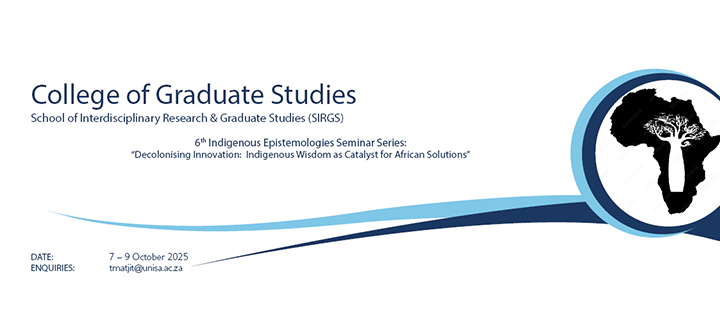 Decolonising innovation: indigenous wisdom as a catalyst for African solutions
Decolonising innovation: indigenous wisdom as a catalyst for African solutions
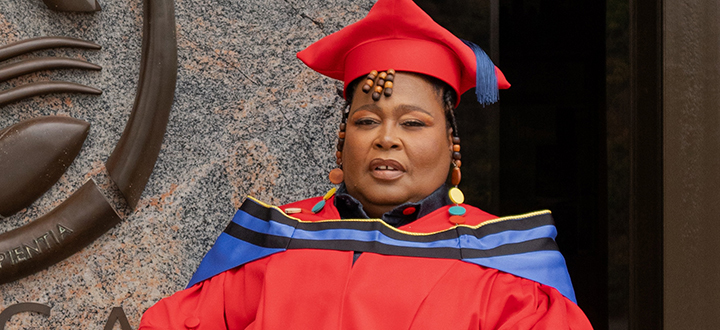 Unisa PhD graduate rises with dignity, and proudly lives with equity
Unisa PhD graduate rises with dignity, and proudly lives with equity
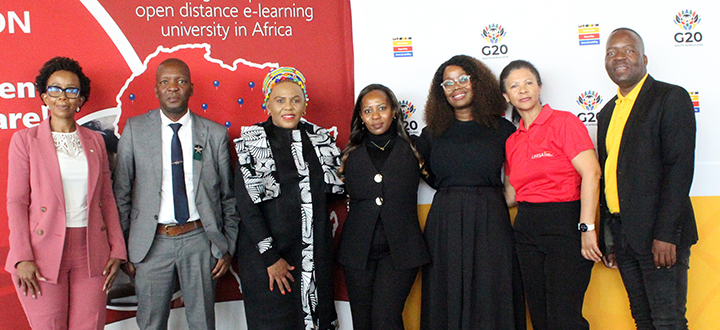 Unisa co-hosts Rustenburg G20 engagement
Unisa co-hosts Rustenburg G20 engagement
 Unisa academic's research finds healthcare solutions in digital transformation
Unisa academic's research finds healthcare solutions in digital transformation
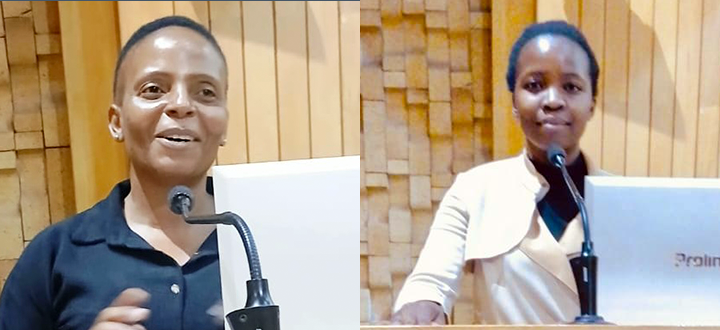 Unisa students shine at first BICTaD Conference
Unisa students shine at first BICTaD Conference